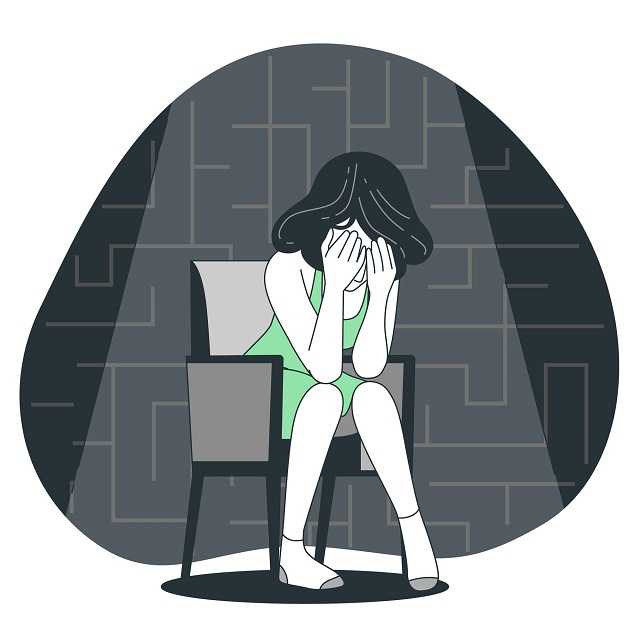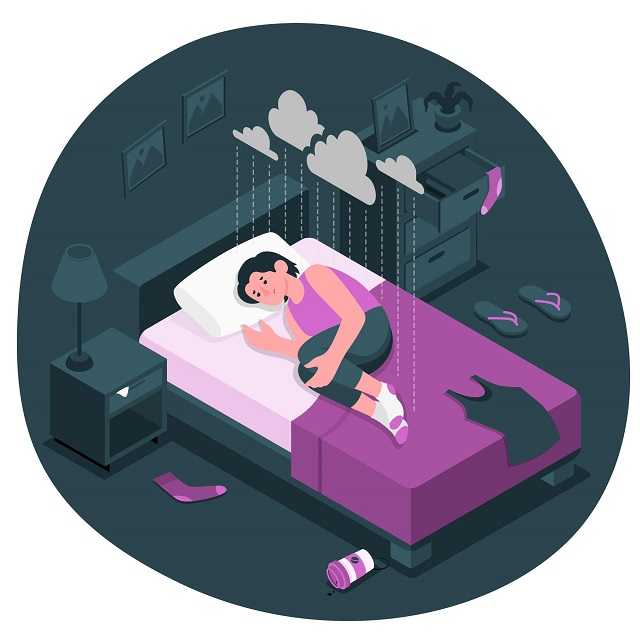Natural Depression Remedies and Symptoms of Depression

Depression is a serious mental condition characterized by a gloomy mood, a loss of interest in formerly pleasurable activities, feelings of guilt or low self-worth, abnormal sleep patterns, reduced appetite, a lack of energy, and impaired concentration.
These symptoms can cause an individual's capacity to manage his or her daily obligations to deteriorate, and they can become chronic or recurrent.
Depression is a significant mental disease with signs ranging from mild to profound, and it can be fatal. Some people prefer to treat depression using natural treatments rather than medicine prescribed by a doctor.

Natural treatment methods to manage depression
Always treat depression symptoms seriously because depression does not go completely on its own. Although there are many ways to help your mental health, you shouldn't try to manage your conditions on your own.
Speak with your doctor about some of the self-help options that could help you with your therapy.
Treatment #1: Art Therapy
Art Therapy is a type of therapy that involves the use of our anxiety and despair can often materialize because we don't feel like we've had enough opportunities to express ourselves.
We can use art therapy to discover a medium to assemble our feelings and thoughts in ways that allow us to get them out of our heads and into the real world. Even if no one else sees their labor, many people find it tremendously fulfilling.
Treatment #2: Regular Physical Exercise
Adding regular exercise to your schedule has a lot of advantages. Aside from the cardiovascular benefits, focusing on a constructive activity frequently results in a happy mood that lasts both immediately and over time.
You can practically teach your body to be happier by doing the technique on a regular basis.
Regular exercise also has two benefits: you gain a sense of pride for having such a healthy body, and you avoid adopting your normal useless, painful, and harmful thought patterns that contribute to sadness.
Treatment #3: Diet
A well-nourished body is better able to cope with stress, recuperate from ailments, and cope with adversity. The gut-brain axis allows the gut bacteria to connect with the brain, making nutrition a potent herbal treatment for depression.
Treatment #4: Massage
The reality is, we'd all be in a better place if we all got frequent massages or back rubs. What a mere massage can do to foster a happy view of life is amazing.
Perhaps merely enabling our backs—the structure that keeps the rest of our bodies upright—to relax inspires our minds to do the same. Whatever it is, it works, and it works quickly.
Exercise is not only important for healthy wellbeing, but it is also imperative for good health. While the link isn't fully understood, research shows that exercise can help ease anxiety symptoms.
Getting active assists to divert your attention away from the problems that are bugging you. It also causes endorphins, which are natural feel-good hormones, to be released.
Best supplements for depression
Several researchers have looked into the use of nutrients in the treatment of depression. However, not all research are created equal, and findings from thorough studies published in high-quality journals should be taken into account.
It can be difficult to determine which supplements are beneficial and how to differentiate between high-quality brands.
According to numerous researches, supplements that have been third-party evaluated and found to be safe to take are listed by below.
- Douglas Laboratories
- Carlson Laboratories
- Klaire Labs,
- Nature Made
- Metagenics
- OmegaBrite
- Orthomolecular Products
- Prothera,
- Pure Encapsulations,
- Truehope
- Vital Nutrients are respectable manufacturers.
Fish oil
Fish oil is a kind of omega-3 fatty acids that are important for certain brain activities and may help decrease inflammatory response linked to depression, are abundant in fish oil.
Fish oil contains two forms of omega 3s: EPA and DHA. When it comes to depression, researchers discovered that EPA is the most beneficial.
Vitamin D
Our bodies naturally manufacture vitamin D when exposed to sunlight and is an important nutrient. Nevertheless, studies have indicated that most individuals have inadequate levels, particularly those living in northern latitudes with less solar exposure, and that persons with low vitamin D levels are more likely to suffer from depression.
Vitamin D receptors have been found in areas of the brain linked to depression, and it may play a role in the production of certain neurotransmitters.

L-Methylfolate
Some people have a genetic constitution that prevents them from using folic acid properly in cellular processes, which has been linked to depression. L-Methylfolate can assist in bridging this gap and maintaining cellular activities.
Symptoms of Depression
For two weeks or more, a major depressive episode is described as experiencing five or more of the following symptoms every day (or most days):
- Agitation or severe anxiety/panic episodes
- Excessive guilt or an overly low self-image
- Sleep issues
- Loss of interest or motivation
- Self-harming thoughts, plans, or activities
Author Bio
This user has not submitted a user bio yet
Article Comments
No Comments!
At present there are zero comments on this article.
Why not be the first to make a comment?
Similar Articles
Sponsor
Search Articles
Experts Column
Latest Articles
Featured Articles
Most Popular Articles












